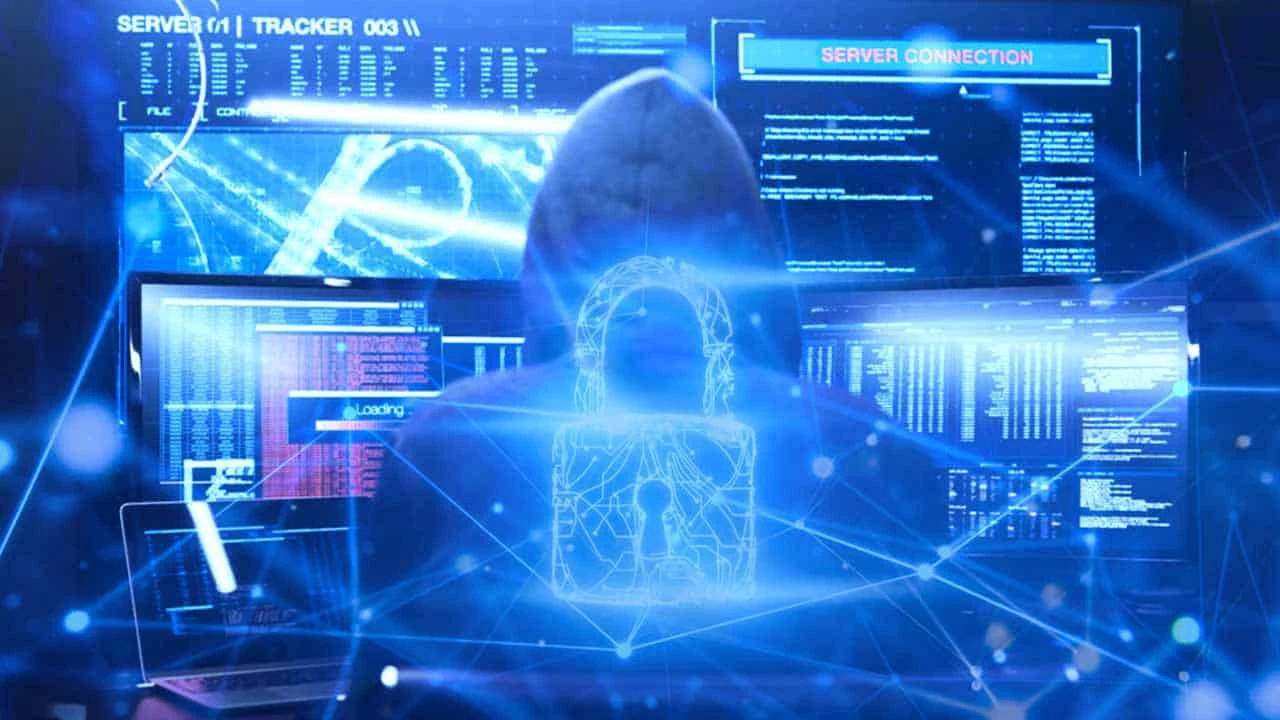Are you looking to improve your cybersecurity skills and knowledge? Have you been considering taking an ethical hacking course? You’re in luck! There are a variety of ethical hacking courses available that can help you to understand the basics of cyber security and how to protect your data from malicious attacks.
Ethical hacking is an important field, as it helps organizations protect themselves against malicious cyber-attacks. It involves identifying security threats, vulnerabilities, and weaknesses in a system or application. By taking an ethical hacking course, you will not only gain the knowledge needed to identify and mitigate security threats but also be able to develop strategies for preventing them in the first place.
One of the most popular courses is the EC-Council’s Ethical Hacking Essentials (EHE). This course covers topics such as network scanning, password cracking, malware analysis, and social engineering. It also teaches students how to create a secure environment through vulnerability assessment and penetration testing. The course provides practical experience through hands-on labs so that students can apply the knowledge they have gained in real-world scenarios.
Another popular course is IBM Cybersecurity Analyst: IBM Ethical Hacking Essentials (EHE). This course focuses on teaching students how to identify and respond to malicious activities on their networks as well as analyzing risks and developing strategies for countering them. Students will also learn about various attack vectors such as phishing emails, ransomware attacks, botnets, SQL injection attacks, and distributed denial of service (DDoS) attacks. In addition to this course being offered by IBM itself, there are several other providers offering similar content such as Cybrary and Udemy.
If you’re looking for a more comprehensive introduction to the world of ethical hacking then consider taking Introduction to Cybersecurity Tools & Cyber Attacks from IBM. This course provides an overview of the different attack vectors used by hackers such as malware infections, phishing emails, SQL injection attacks, DDoS attacks, etc., as well as an introduction to different types of tools used by hackers like port scanners and packet sniffers. It also covers topics related to cryptography including encryption algorithms and public/private key pairs.
For those who want a more thorough understanding of cyber defense fundamentals then consider taking EC-Council’s Cybersecurity Attack and Defense Fundamentals class. In this class, students will learn about different types of attack vectors such as spear phishing emails or drive-by downloads; defensive techniques like firewalls or intrusion detection systems; network monitoring concepts; techniques for logging information; incident response procedures; log management practices; data destruction processes; threat modeling techniques; risk assessment methods; malware analysis procedures; incident response protocols; legal considerations related to cybercrime; etc.
These are just some of the many ethical hacking courses available today that can help you gain valuable insight into cyber security best practices that can be applied in order to protect your data from malicious actors on the web! So if you’re looking to improve your cyber security skills then consider taking one or more of these courses – they could provide you with valuable knowledge that could be applied in order to protect your data from potential attackers!

The Best Course for Ethical Hacking
The best course for ethical hacking depends on a variety of factors, such as your current experience level, the type of ethical hacking you’re interested in, and which certifications you may be seeking. For those with limited experience or who are just starting out, IBM’s Ethical Hacking Essentials (EHE) is an excellent choice. It covers the basics of ethical hacking and prepares you for the EC-Council Certified Ethical Hacker Exam. For those looking to learn more about cybersecurity tools and cyber attacks, IBM’s Introduction to Cybersecurity Tools & Cyber Attacks is an ideal course. It covers network security, malware types, and analysis, cryptography, and much more. Finally, EC-Council’s Cybersecurity Attack and Defense Fundamentals are great for anyone wanting to learn foundational skills in offensive and defensive security tactics. This course provides hands-on instruction on different attack methods along with strategies to defend against them.
Types of Hackers
1. White Hat / Ethical Hackers: These are the good guys of the hacking world, using their skills to help improve security by exposing vulnerabilities before malicious hackers have a chance to exploit them.
2. Black Hat Hackers: As the name implies, these are the bad guys of the hacking world, using their skills to maliciously exploit weaknesses in networks and systems for financial gain or other types of personal gain.
3. Gray Hat Hackers: These hackers fall somewhere in between white hat and black hat hackers, using their skills for good or bad depending on the situation. They may hack into a system with malicious intent but then provide information to the organization that was hacked to help them improve their security posture.
4. Script Kiddies: These are novice hackers who lack advanced technical skills and knowledge but can use tools made by others to carry out cyber attacks.
5. Green Hat Hackers: These are novice hackers who are still learning how to hack and looking for ways to practice their new-found skills without actually doing any harm, such as by participating in hackathons and ethical hacking competitions.
6. Blue Hat Hackers: These are usually non-professional hackers who are invited by an organization to test its security posture from an outsider’s perspective and provide suggestions on how it can be improved.
7 Red Hat Hackers: These are professional hackers hired by organizations to hack into their systems in order to identify vulnerabilities before malicious attackers do so and give advice on how these can be addressed.
Learning Ethical Hacking on One’s Own
Yes, you can definitely learn ethical hacking on your own. It is possible to do so with the right amount of dedication and hard work. To become an ethical hacker, you need to possess a wide range of skills and knowledge that can be gained through self-study.
You will first need to have a basic understanding of computer networks and systems, as well as an in-depth knowledge of operating systems such as Windows, Linux, Unix, etc. You will also need to familiarize yourself with various programming languages such as C++, Java, Python, and HTML in order to carry out effective coding activities. Additionally, you will need an understanding of cryptography and encryption methods used in security protocols.
Apart from this technical knowledge, it is essential for ethical hackers to also be aware of the legal aspects of hacking which involve regulations related to privacy and security laws as well as data protection policies. Understanding the laws that govern cybercrime can help you stay on the right side of the law while carrying out your hacking activities.
Finally, gaining hands-on experience is also an important part of learning ethical hacking. There are many online resources such as tutorials and video lectures available online that you can use to gain practical experience in the field. You can also participate in online challenges and competitions related to ethical hacking for testing your skillset and furthering your learning process.
The Value of Taking an Ethical Hacking Course
Yes, ethical hacking courses are definitely worth it. Earning a CEH certification can equip you with the skills and knowledge to become an in-demand professional in the cybersecurity field. Not only will it help you secure higher salaries, but you’ll also gain job security due to the increasing demand for professionals who have this certification. Additionally, CEH certifications can provide additional points in various security credentialing programs. With this certification, you will have an advantage over other job applicants and be able to demonstrate your technical expertise to employers.
Average Salary of an Ethical Hacker
An ethical hacker, also known as a white hat hacker, is a computer and network security professional who helps to identify security vulnerabilities in an organization’s systems and networks. Ethical hackers use their skills to uncover weaknesses in a system or network and then work with the organization to find solutions that protect the system from malicious activity. In India, the average salary of an ethical hacker is around Rs. 5.2 LPA.
The salary of an ethical hacker depends on many factors such as experience, qualifications, geographical location, and sector. For instance, professionals employed in the banking sector typically earn more than those working in other industries such as technology or healthcare. Additionally, experienced professionals can command higher salaries than those with little to no experience. Furthermore, salaries vary significantly depending on the geographical location of a job; for example, ethical hackers working in major cities tend to earn more than those working in rural areas.
Ultimately, ethical hackers are highly valued professionals that help organizations reduce the risk of data breaches and cyber attacks by helping them identify and mitigate potential vulnerabilities before they are exploited by malicious actors. As such, ethical hacking is one of the most sought-after IT jobs today, with salaries continuing to rise as demand increases for skilled professionals who can effectively protect organizations from cyber threats.
The High Pay of Ethical Hacking
Yes, ethical hacking is a high-paying field. The average salary for ethical hackers in the United States is $105,942 as of January 26, 2023, and the salary range typically falls between $94,507 and $120,861. This is significantly higher than the national average for all occupations which is just under $49,000. Additionally, many ethical hackers are able to make even more money through consulting gigs and freelance work. Therefore, ethical hacking can be an extremely lucrative career path for those with the right skills and training.
What Programming Language Do Most Hackers Use?
Most hackers use a combination of programming languages to achieve their goals. The most popular and widely used code for hacking is Python. Python is a general-purpose programming language and is often the first choice for exploit writing in the field of hacking. It is easy to learn and has powerful libraries which allow hackers to quickly develop tools for their attacks. Other popular languages used by hackers include JavaScript, PHP, SQL, and C Programming. These languages are often combined with Python to create powerful tools that can be used to penetrate networks or gather information from systems.
Skills Used by Hackers
Hackers use a variety of skills to gain unauthorized access to systems and networks. These skills can range from basic technical knowledge, such as understanding operating systems and coding languages, to more complex abilities like network exploitation and reverse engineering. Some of the most commonly used hacker skills include:
1. Programming Skills: Hackers must have an in-depth knowledge of various programming languages, such as HTML, Java, C++ and Python, in order to write scripts that can be used for malicious purposes.
2. Network Exploitation: This involves taking advantage of vulnerabilities in a network’s architecture in order to gain access to protected data or resources.
3. Reverse Engineering: This involves analyzing existing code or software applications in order to understand how they work and uncover potential security flaws or weaknesses that can be exploited.
4. Cryptography: Hackers must have a strong understanding of cryptography algorithms and techniques in order to protect data as well as decipher encrypted messages sent by other hackers or organizations.
5. Social Engineering: This involves manipulating people into revealing confidential information or granting access to restricted areas through deception or manipulation tactics such as phishing emails or fake websites.
6. SQL Injection (SQLI): This is one of the most common methods used by hackers who exploit weaknesses in web applications by inserting malicious code into SQL databases in order to gain access to sensitive data such as usernames and passwords.
7. Operating System Knowledge: Hackers must understand the various types of operating systems, such as Windows, Linux, Mac OSX, and Android, in order to identify vulnerabilities that can be exploited for malicious purposes.
The Difficulty of Becoming an Ethical Hacker
Yes, becoming an ethical hacker is quite hard. Ethical hacking is a highly specialized field and requires a good deal of technical knowledge, analytical skills, and problem-solving ability. To become an ethical hacker, you must have a deep understanding of computer networks, operating systems, computer programming languages, and security protocols. Additionally, you must have experience in using tools such as penetration testing software and network monitoring systems to identify vulnerabilities in systems. Furthermore, you should also possess the necessary interpersonal skills to interact with other IT professionals when performing ethical hacking tasks. Therefore, it is essential for aspiring ethical hackers to devote time and effort to learning these techniques before attempting to use them professionally.
The High Demand for Ethical Hackers
Yes, ethical hackers are in high demand. Organizations across the globe are increasingly recognizing the need to protect their networks and systems from malicious cyber attacks. To do this, they require the services of skilled and certified ethical hackers who can identify potential security weaknesses and help them create a secure environment.
Organizations are willing to pay a premium for ethical hackers as they understand the cost savings associated with preventing an attack before it happens, rather than dealing with the aftermath of a successful attack. The cost of cybercrime is estimated to be over $1 trillion globally by 2021, so there is a strong incentive for organizations to invest in ethical hacking services.
The demand for ethical hackers is only set to increase as more organizations become aware of the risks posed by cyber threats. In addition, advancements in technology are creating more opportunities for malicious actors, so organizations must ensure that their security measures keep pace with these developments. As such, hiring an ethical hacker is seen as an essential part of any organization’s risk management strategy.
Are Hackers in High Demand?
Yes, hackers are in high demand. With the increasing number of cyber security threats, businesses and organizations need skilled professionals to monitor and protect their networks from malicious activity. Ethical hackers (also known as “white hat” hackers) specialize in finding vulnerabilities in networks or systems before they can be exploited by malicious actors. Ethical hacking is a growing field and a valuable skill to possess. As the digital landscape continues to evolve and expand, companies are increasingly relying on ethical hackers to help identify potential threats and create secure systems that protect valuable data. As the demand for ethical hacking services rises, so does the demand for certified ethical hackers with the necessary skill set to fill these roles. Companies are willing to pay top dollar for experienced ethical hackers who can help them stay ahead of cybercriminals. Therefore, there is no doubt that hackers are in great demand!
Conclusion
In conclusion, ethical hacking courses are a great way to gain the skills and knowledge needed to improve your cybersecurity skills. They provide a comprehensive overview of all aspects of ethical hacking, from identifying potential vulnerabilities and threats to learning about security tools and techniques. With the help of certified instructors and hands-on practice, you can gain the skills necessary to become an effective ethical hacker. As such, earning your CEH certification is beneficial for those looking to increase their salary or find job security in the field of cybersecurity.








